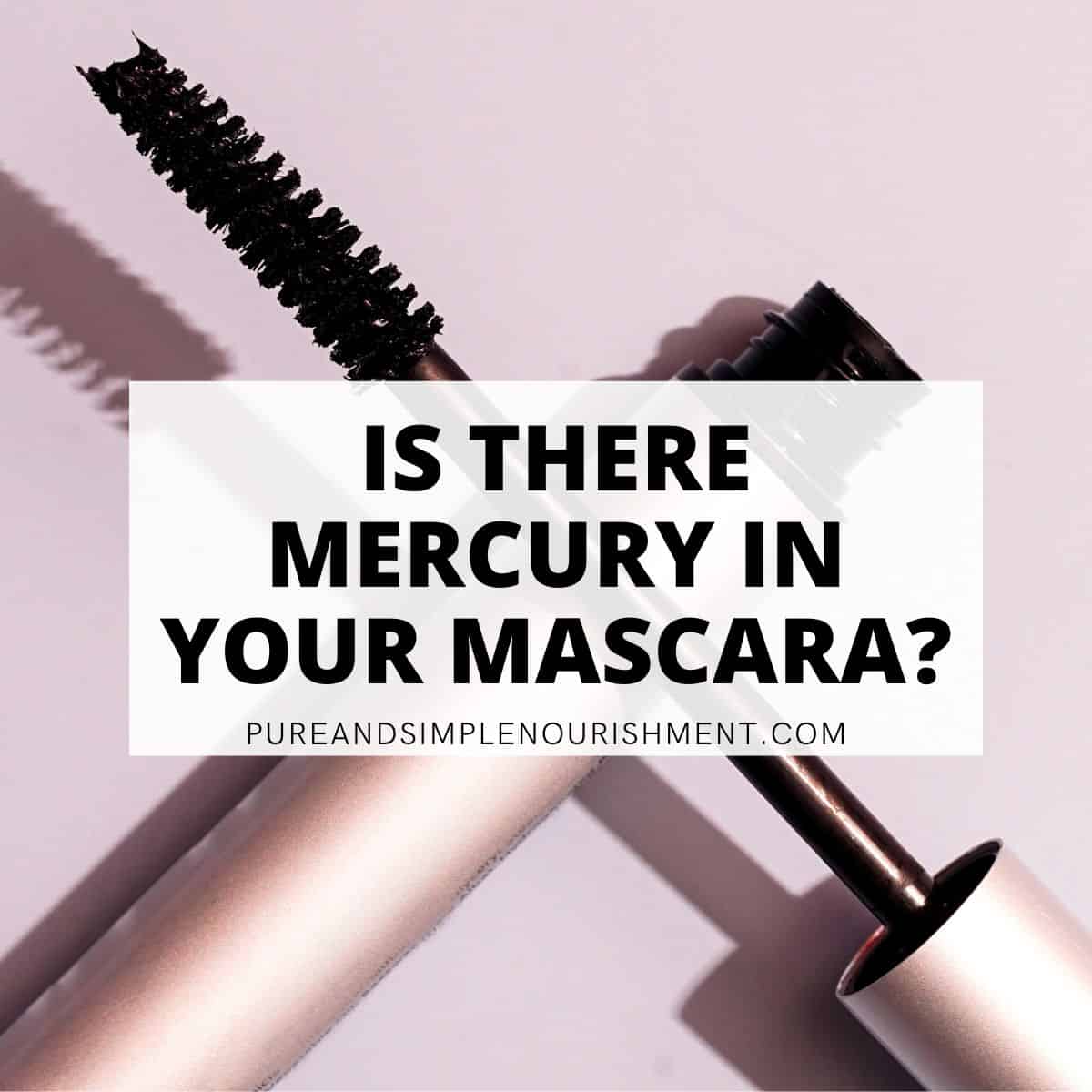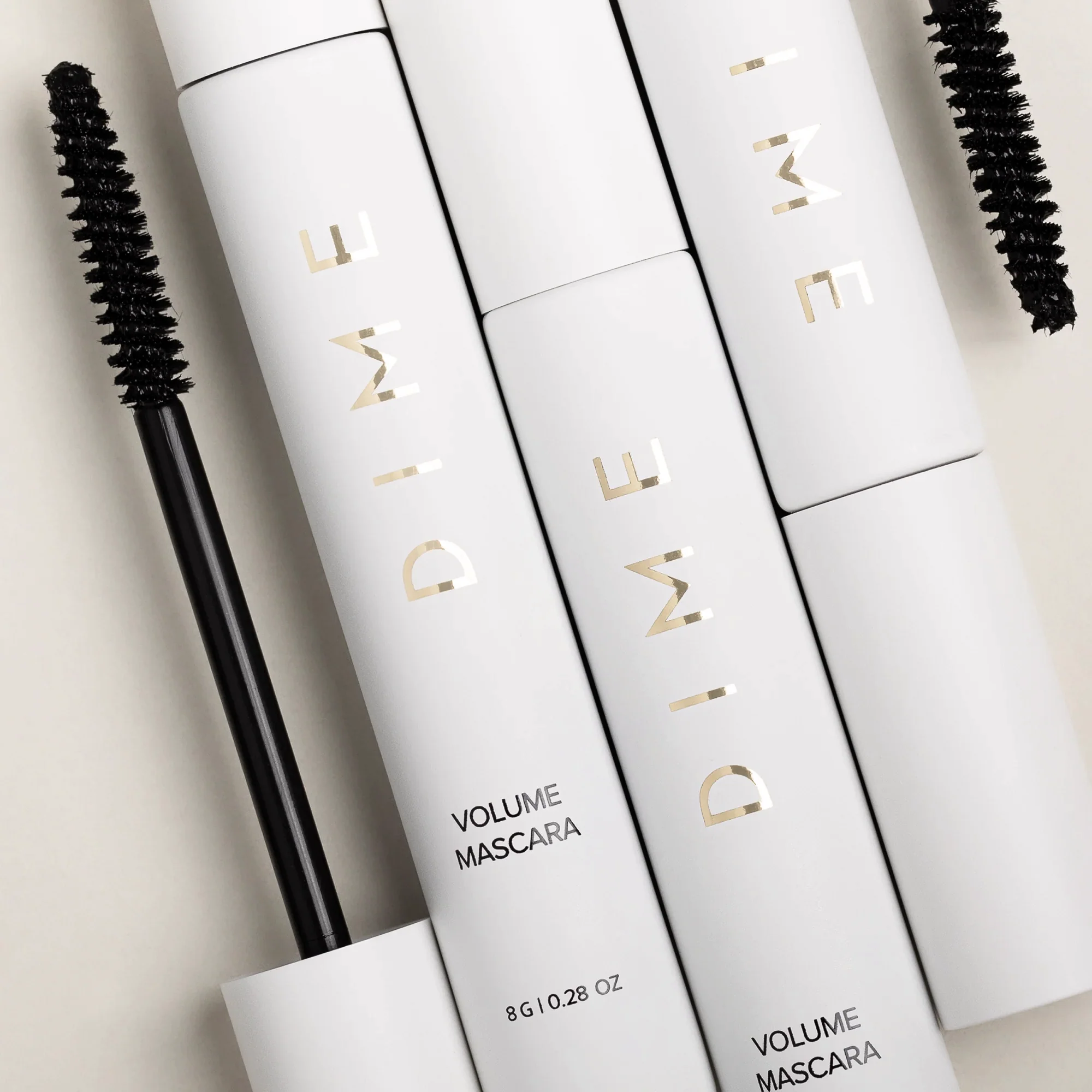Did you know that there could be mercury in your mascara? This post will share why mercury is allowed in mascara, the risks of mercury, and how to choose safe, mercury free mascara brands.

Disclaimer: some of the links in this post are affiliate links whereby I make a small commission if you purchase the product through that link. This does not cost you anything extra and helps me to keep this website running.
Is there mercury in your mascara?
Is there mercury in your mascara? There might be. How scary is that?
It's scary because mercury is extremely harmful to our health, with mercury toxicity most commonly affecting the neurologic, gastrointestinal and renal/kidney systems. It can cause allergic reactions, skin irritation or neurotoxic manifestations. Mercury has also been linked to developmental toxicity, respiratory (lung) toxicity, vision loss, numbness and loss of sensation, headaches, fatigue, slurred speech, difficulty walking and skin rashes.
Mercury compounds are readily absorbed through the skin from topical application and tend to accumulate in the body and mercury poisoning has occurred from the use of skincare products containing mercury.
Babies exposed to mercury in the womb are the most severely affected. They develop low birth weights, seizure disorders, developmental delay, vision loss or total blindness, and hearing loss. Widespread nerve damage can also occur when babies are exposed in the womb.
Long-term studies have shown that prenatal exposure to mercury, even at low concentrations can still be dangerous, leading to decreased motor function, language development, and memory issues. Children that are exposed before birth can have long term problems including motor impairment, visual loss, hearing loss, developmental delay, and seizure disorders.
Mercury poisoning can result from mercury inhalation, mercury ingestion, mercury injection, and absorption of mercury through the skin when it is used in cosmetics and personal care products. Unfortunately, mercury compounds are readily absorbed through the skin which can then allow mercury to accumulate in the body. So, besides allergic reactions and skin irritation that can occur from direct application of personal care products containing mercury, more systemic effects can occur including neurotoxic manifestations.
Most people realize that they can be exposed to mercury from eating certain types of fish, but many people have no idea that they can be exposed through their skincare or makeup products as well. You would like to think that using mercury in makeup would be prohibited, but it's not, at least not entirely.
So let's go over how and why.
In 1974 The FDA banned mercury in most cosmetic products. However, it is not a complete ban. The FDA has said that mercury compounds may be used in cosmetic products in small amounts as a preservative in products that are used around the eyes when no equally safe and effective alternative is available. The main problem with that statement? There are many other safe, alternative ingredients that can be used as preservatives instead of mercury. So why they have allowed this loophole to exist makes no sense. Remember, even small doses of mercury exposure can be dangerous.
According to FDA regulations, any cosmetic product that contains more than unavoidable traces of mercury is in violation of the Federal Food, Drug and Cosmetic Act and is subject to legal action. However, products used around the eyes are exempt from this rule. The FDA has set a maximum allowable limit for mercury in cosmetic products of no more than 1 part per million (0.0001 percent). Any amount at or above this limit is subject to strict regulatory action, except for products intended for use around the eyes. This exception applies to preservatives in eye-area products such as eyeliners and mascara. It does not apply to creams and lotions.
The "logic" behind this exception is that mercury-containing preservatives are exceptionally effective in preventing Pseudomonas bacterial contamination of cosmetics. However, there are many other safer preservatives that can do the same job without the health risks. The FDA regulations allow mercury to be used as a preservative up to a maximum level of 65 parts per million (ppm) or limited to 65 parts per million ppm (0.0065 percent) of mercury. The good thing is that most companies have gone away from using mercury as a preservative, but this is most, not all.
Even as recently as 2013, the UN, During the Diplomatic Conference for the Minamata Convention on Mercury excluded mascara and eye makeup from the ban on mercury in cosmetics and soaps.
The other scary thing is that if a company is using mercury as a preservative in their eye makeup, they don't have to disclose this ingredient on the label because the FDA does not require ingredients that comprise less than 1% of a cosmetic product to be shown on the label. So, even if you want to make a conscious decision to avoid mercury in your mascara or other eye makeup, you will not be able to find this ingredient listed on the label, which makes it extremely difficult for you to find out if it is in the product or not.
I recommend only using mascara and eye makeup from brands that are committed to transparency and safety and that would never formulate with mercury. I have spent a long time trying various natural and safe mascaras that are mercury free and have finally found one that I like.
My favourite safe mascara:
Dime Beauty mascara

This is my favourite non toxic mascara. This mascara is great for adding volume to lashes and doesn't clump or smudge. The Dime Beauty mascara is vegan and cruelty free and I love that they provide the EWG rating on all of their ingredients so you know that it's safe.
I hope you found this helpful! Just remember, that what you put on your body is just as important as what goes in your body so make sure you are making smart choices when it comes to your skincare and beauty products. If you have any questions about picking safe products please let me know.
You can also download my free PDF to help you learn which ingredients to avoid in skincare and cosmetics:
Other health information you will like:
- The best non toxic vitamin C serums
- How to choose safe cookware
- Why I don't use retinol
- Deodorant health risks
- Health benefits of creatine for women
Our expertise:
Dr. Erin Carter, MD, FRCPC, is a physician with board certifications in internal medicine and rheumatology. She is passionate about preventative healthcare including nutrition, environmental health and low toxicity living. She is also a self-trained chef and has been creating and publishing healthy recipes since 2015. Her recipes have been featured on many different websites and online publications.


Linda
Can you recommend a mascara available in Canada?
Thanks
Linda
Erin Carter
I love the Beautycounter volumizing one!